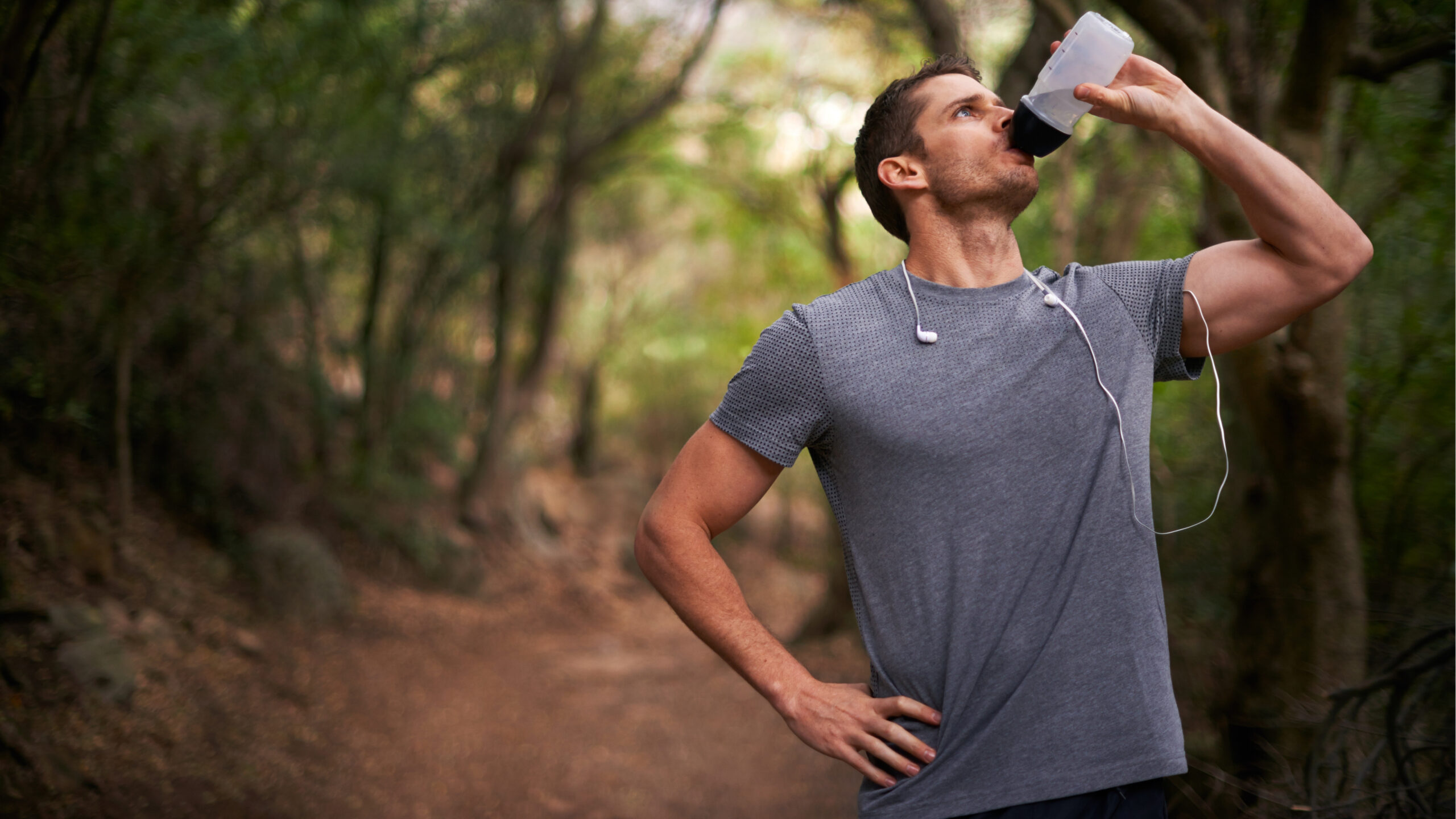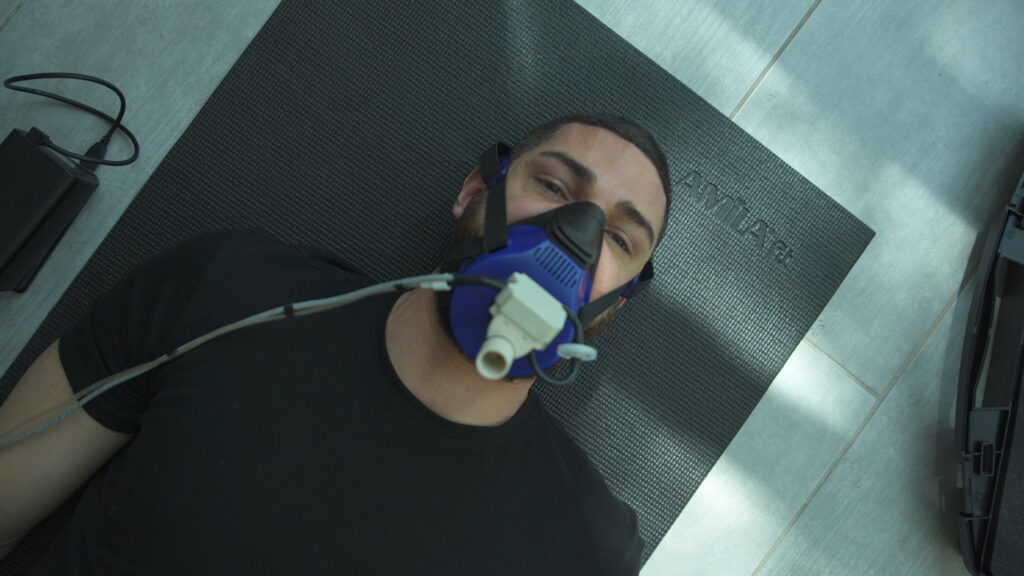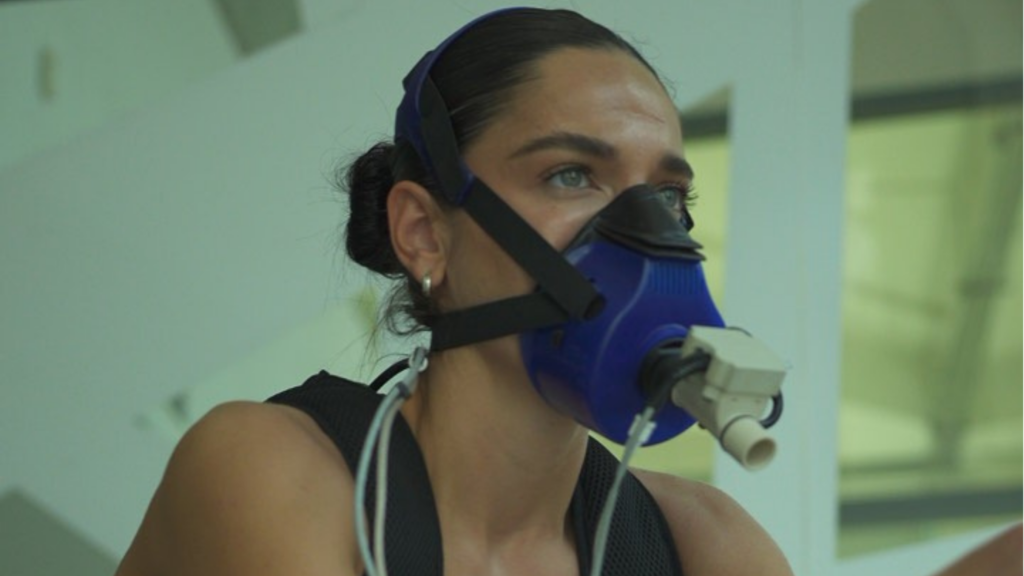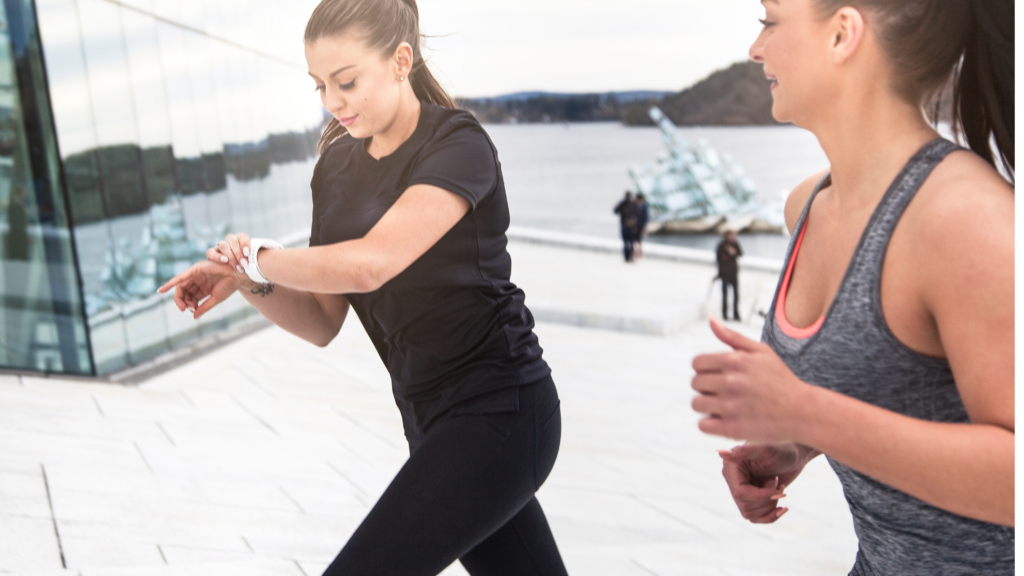Introduction: Unlock Your Peak Performance – The Power of Hydration and VO2max
Achieving peak athletic performance is a pursuit that demands meticulous attention to training, nutrition, and a third, often underestimated pillar: hydration. Optimal hydration is not merely about quenching thirst; it is a fundamental physiological requirement that underpins every aspect of athletic capability. Central to this is the concept of VO2max, or maximal oxygen uptake, which represents the maximum rate at which an individual can consume oxygen during intense exercise. This metric is a key indicator of aerobic fitness and performance capacity. Proper hydration plays a vital role in directly supporting the physiological functions that determine VO2max and indirectly enhancing the training capacity required to improve it 1. By understanding and implementing sport-specific hydration strategies, athletes can unlock their full potential and strive for peak performance.
The Fundamental Role of Hydration in Athletic Performance
Water is the lifeblood of athletic performance, essential for a multitude of bodily functions that are critical for optimal functioning 3. It acts as a solvent, transporting nutrients and waste products, and participates in numerous metabolic reactions 5. For athletes, maintaining adequate hydration is paramount for regulating body temperature, facilitating nutrient transport, lubricating joints, ensuring optimal cognitive function, and maintaining electrolyte balance 3.
Temperature Regulation
During physical activity, the body generates heat, and sweating is its primary mechanism for cooling down 3. This process, however, relies on adequate hydration 3. When an athlete is dehydrated, the body’s ability to sweat efficiently is compromised, leading to a faster rise in core temperature 1. This can increase the risk of heat-related illnesses such as heat exhaustion and heatstroke 3. Furthermore, an elevated body temperature puts additional strain on the cardiovascular system, directly impacting the body’s ability to deliver oxygen to working muscles, thereby negatively affecting VO2max 1. Studies have shown that even mild dehydration can significantly impair thermoregulation, which is crucial for sustaining high-intensity exercise and achieving peak VO2max 1.
Nutrient Transport
Water serves as the medium for transporting oxygen and essential nutrients to the working muscles 3. These nutrients are vital for energy production, which fuels athletic performance 3. Dehydration leads to a decrease in blood volume and an increase in blood viscosity, making it harder for the heart to pump blood effectively 1. This reduced efficiency in nutrient delivery can impair muscle function and endurance, ultimately limiting the athlete’s capacity to perform at their maximal aerobic potential, reflected by a lower VO2max 1.
Joint Lubrication
Water plays a crucial role in lubricating joints and maintaining the elasticity of muscles 3. Synovial fluid, which cushions the joints, is largely composed of water 10. Adequate hydration ensures that joints are properly lubricated, reducing friction and the risk of injuries 3. Dehydration can lead to muscle stiffness and decreased joint mobility, making athletes more susceptible to cramps and injuries that can disrupt training and negatively impact long-term VO2max development 3.
Cognitive Function
Hydration also significantly affects cognitive function, which is essential for athletes who need to make quick decisions and maintain focus during training and competition 3. Dehydration can impair concentration, reaction time, and coordination 3. These cognitive impairments can directly affect an athlete’s performance and their ability to push themselves to reach their peak VO2max 3. The brain relies on a delicate balance of fluids and electrolytes to function optimally, and even mild dehydration can disrupt this balance 5.
Electrolyte Balance
Electrolytes, including sodium, potassium, and magnesium, are minerals that carry an electric charge when dissolved in water 5. They are crucial for nerve and muscle function, including the heart muscle 5. During exercise, electrolytes are lost through sweat 5. While water is essential for rehydration, it does not replace these lost electrolytes 15. Maintaining electrolyte balance is vital for preventing muscle cramps, sustaining energy levels, and supporting the body’s ability to perform at high intensities, which are necessary for achieving and maintaining a high VO2max 13.
Hydration Needs Across Different Sports
The specific hydration requirements for athletes vary significantly depending on the type of sport they participate in. Endurance athletes, strength trainers, and team sport players each face unique challenges and demands that necessitate tailored hydration strategies.
Endurance Athletes: Sustaining Aerobic Power and VO2max
Endurance sports, such as long-distance running, cycling, and swimming, are characterized by prolonged periods of sustained aerobic activity 5. These activities often result in high sweat rates, leading to substantial fluid and electrolyte losses 5. For endurance athletes, proper hydration is paramount for maintaining blood volume, which directly impacts the delivery of oxygen to working muscles 1. This is critical for sustaining aerobic power and optimizing VO2max over extended durations 1. Dehydration can significantly reduce VO2max, with studies showing a decrease of approximately 5% with a body mass loss of just 3% 1. Furthermore, endurance athletes need to focus on replacing both fluids and electrolytes, particularly sodium, to prevent hyponatremia, a condition of low blood sodium that can occur with excessive water intake without adequate electrolyte replacement 14. Maintaining proper hydration allows endurance athletes to sustain their performance and maximize their aerobic capacity, ensuring they can compete closer to their potential VO2max for longer periods 20.
Strength Trainers: Fueling Muscle Function and Indirectly Boosting VO2max
While strength training typically involves shorter, more intense bouts of activity compared to endurance sports, hydration remains a crucial factor for muscle function, recovery, and overall training capacity 17. Muscle tissue is composed of approximately 70-75% water 21. Dehydration can impair muscle strength, power, and endurance, with studies indicating that a fluid loss of just 2% can lead to a reduction of about 2% in strength and 3% in power 9. Proper hydration facilitates the transport of nutrients necessary for muscle repair and recovery after intense training sessions 8. This efficient recovery allows strength trainers to engage in more frequent and intense training, which, over time, can indirectly contribute to improvements in their VO2max 21. Although the direct impact of hydration on VO2max during a strength training session might be less immediate compared to endurance activities, maintaining adequate hydration supports the overall physiological environment necessary for long-term fitness development, including aerobic capacity 24.
Team Sport Players: Balancing Endurance and High-Intensity Efforts for Peak VO2max
Team sports, such as soccer, basketball, and hockey, present a unique hydration challenge due to their intermittent nature, which involves periods of sustained activity interspersed with bursts of high-intensity effort 25. Players need to maintain adequate hydration to support both their endurance capacity and their ability to perform repeated high-intensity actions 27. Dehydration can impair both physical skills, such as shooting accuracy, and movements like sprinting 20. Strategic hydration during breaks in play is crucial for team sport athletes, as even mild dehydration can negatively affect performance, including cognitive functions like decision-making and reaction time, which are vital in fast-paced team environments 3. Furthermore, team sport athletes often compete in varying environmental conditions, including heat and humidity, which can significantly increase sweat rates and the need for both fluid and electrolyte replacement to maintain performance and optimize their ability to reach peak VO2max during critical moments of a game 25.
Sport-Specific Hydration Strategies
Effective hydration strategies are tailored to the specific demands of each sport and should address fluid intake before, during, and after activity.
Pre-Activity Hydration: Preparing Your Body for Optimal Performance
Starting any athletic activity in a well-hydrated state is crucial for optimal performance and can positively influence VO2max.
- Endurance Athletes: It is recommended that endurance athletes consume approximately 5-7 milliliters of fluid per kilogram of body weight about 4 hours before exercise 17. If urine output is low or urine is dark within the 2 hours leading up to exercise, an additional 3-5 ml/kg should be consumed 30. This ensures that athletes begin their activity euhydrated, which is essential for maintaining optimal VO2max 17.
- Strength Trainers: Strength trainers should aim to drink 16-24 fluid ounces of water within the 2 hours preceding their training session 15. An additional 7-10 fluid ounces about 10-20 minutes before starting can further ensure adequate hydration for muscle function, which indirectly supports VO2max development 11.
- Team Sport Players: Team sport athletes should consume 500-600 ml (approximately 17-20 fluid ounces) of water or a sports drink 2-3 hours before a game or practice 22. An additional 200-300 ml (7-10 fluid ounces) 10-20 minutes prior can help maintain hydration levels and support VO2max throughout the activity 31.
During Activity Hydration: Maintaining Fluid Balance and Sustaining VO2max
Maintaining fluid balance during exercise is vital for sustaining performance and preventing a significant drop in VO2max.
- Endurance Athletes: During prolonged endurance events, athletes should aim to drink 4-6 ounces of fluid every 15 minutes 14. For activities lasting longer than an hour, incorporating sports drinks containing carbohydrates and electrolytes can help maintain energy levels and replace lost sodium, thus supporting the maintenance of VO2max 17. The goal is to prevent dehydration exceeding 2% of body weight to avoid compromising VO2max 20.
- Strength Trainers: Strength trainers should consume 6-12 fluid ounces of water every 10-20 minutes during their workout 5. For longer sessions exceeding 45 minutes, especially those involving high sweat rates, sports drinks can be beneficial for electrolyte replacement, which supports muscle function during training that indirectly contributes to VO2max improvements 5.
- Team Sport Players: Team sport athletes should try to consume 150-300 ml of fluid every 15-20 minutes, ideally during breaks in play 25. For prolonged or high-intensity activity, sports drinks can help replenish electrolytes and maintain energy levels necessary for performing at a high VO2max throughout the game 5. Aiming for 7-10 ounces every 10-20 minutes is a general guideline 3.
Post-Activity Rehydration: Recovery and Long-Term Adaptation for Enhanced VO2max
Replenishing fluid and electrolyte losses after exercise is crucial for recovery and supports the body’s ability to adapt to training, ultimately contributing to enhanced VO2max.
- Endurance Athletes: Endurance athletes should drink 16-24 ounces of fluid for every pound of body weight lost during exercise 14. Including sodium in post-exercise fluids or meals can aid in rehydration 17. Chocolate milk is also a good option due to its carbohydrate and protein content, which can help with recovery 5. Proper recovery facilitates consistent training, leading to better VO2max adaptations.
- Strength Trainers: Strength trainers should replace each pound of fluid lost with 16-24 fluid ounces of water within 6 hours post-training 11. Concentrated sports drinks can help replenish glycogen stores, aiding in muscle recovery and preparing the body for subsequent training that can improve VO2max 21.
- Team Sport Players: Team sport athletes should aim to drink the equivalent of 150% of the fluid lost during activity within the first 2-4 hours post-exercise 25. If fluid losses are significant (greater than 2 liters), adding 3-5 grams of sodium per liter of fluid can maximize rehydration 25. General recommendations include consuming 20-24 ounces of fluid for every pound lost 30. Effective rehydration supports recovery, allowing athletes to train and compete at their best, maximizing their VO2max potential.
Table 1: Sport-Specific Hydration Guidelines
| Sport Type | Pre-Activity | During Activity | Post-Activity |
| Endurance | 5-7 ml/kg body weight 4 hours before; 3-5 ml/kg 2 hours before if needed | 4-6 oz every 15 minutes; sports drinks with electrolytes for > 1 hour | 16-24 oz per pound lost; include sodium; consider chocolate milk |
| Strength Training | 16-24 oz water 2 hours before; 7-10 oz 10-20 minutes before | 6-12 oz every 10-20 minutes; sports drinks for workouts > 45 minutes | 16-24 oz water per pound lost within 6 hours; concentrated sports drinks |
| Team Sports | 500-600 ml 2-3 hours before; 200-300 ml 10-20 minutes before | 150-300 ml every 15-20 minutes during breaks; sports drinks for intensity | 150% of fluid loss within 2-4 hours; add sodium if loss > 2 liters; 20-24 oz/lb |
The Impact of Environmental Factors on Hydration and VO2max
Environmental conditions play a significant role in influencing hydration needs and can profoundly impact VO2max.
Heat and humidity are major factors that increase sweat rates across all sports 18. When the body attempts to cool itself through sweating in hot and humid environments, fluid and electrolyte losses are accelerated 14. Consequently, athletes need to increase their fluid intake to compensate for these higher losses 3. In hot conditions, dehydration can lead to a more substantial decrease in VO2max compared to cooler environments 1. This is largely due to the impaired thermoregulation that occurs when the body is dehydrated, further straining the cardiovascular system and limiting oxygen delivery 1. Interestingly, even in cold, dry climates, fluid needs can be elevated due to increased fluid loss through respiration as breathing rate increases 14. Therefore, athletes must adjust their hydration strategies based on the prevailing environmental conditions, often requiring a greater intake of both fluids and electrolytes to maintain performance and mitigate the negative impact on VO2max 3.
Practical Tips for Staying Properly Hydrated
Maintaining optimal hydration requires consistent effort and attention to individual needs. Here are some practical tips for athletes:
- Monitor Urine: Regularly check the color of your urine. Pale yellow indicates good hydration, while darker shades suggest dehydration 30. Also, pay attention to the frequency of urination 5.
- Weigh Yourself: Weigh yourself before and after exercise to get an estimate of fluid loss. This can help you determine how much fluid you need to replace 7.
- Carry a Water Bottle: Keep a water bottle with you throughout the day and sip on it regularly to maintain consistent hydration 11.
- Drink Proactively: Don’t wait until you feel thirsty to drink. Thirst is a late sign of dehydration 34. Be proactive with your fluid intake, especially before, during, and after exercise 15.
- Use Sports Drinks Wisely: For prolonged or intense exercise, consider using sports drinks to replace lost electrolytes, particularly sodium 5.
- Practice Your Plan: Just like training, practice your hydration strategy during training sessions to find what works best for you 14.
- Know Your Sweat Rate: Be mindful of how much you sweat during exercise, as individual sweat rates can vary significantly, and adjust your fluid intake accordingly 27.
Conclusion: Hydration – Your Competitive Edge for Peak Performance and VO2max
Proper hydration is not just a minor detail in an athlete’s regimen; it is a fundamental cornerstone of achieving peak athletic performance across all disciplines. The impact of hydration extends to every physiological system involved in exercise, with a particularly significant influence on sustaining and improving VO2max. By adopting a proactive and personalized approach to hydration, taking into account the specific demands of their sport, the intensity of their training, and the environmental conditions they face, athletes can unlock their full potential. Consistent and strategic hydration is not merely a basic necessity but a powerful tool that provides a crucial competitive edge, enabling athletes to maximize their aerobic capacity and achieve their ultimate performance goals, all while optimizing their VO2max.
Works cited
- Dehydration and its effects on performance – Human Kinetics, accessed March 25, 2025, https://us.humankinetics.com/blogs/excerpt/dehydration-and-its-effects-on-performance
- Effect of Hydration Status on Heart Rate-Based Estimates of VO2max – American Society of Exercise Physiologists, accessed March 25, 2025, https://www.asep.org/asep/asep/JEPonlineFEBRUARY2004_Southard.doc
- Hydration for Athletes – Maximizing Athletic Performance – AOSMI, accessed March 25, 2025, https://advancedorthosports.com/blog/hydration-for-athletes/
- The Importance of Hydration for Athletes – FluidLogic, accessed March 25, 2025, https://fluidlogic.com/blogs/news/the-importance-of-hydration-for-athletes
- Sports and Hydration for Athletes: Q&A with a Dietitian | Johns Hopkins Medicine, accessed March 25, 2025, https://www.hopkinsmedicine.org/health/wellness-and-prevention/nutrition-and-fitness/sports-and-hydration-for-athletes
- Exercise – the low-down on hydration | Better Health Channel, accessed March 25, 2025, https://www.betterhealth.vic.gov.au/health/healthyliving/Exercise-the-low-down-on-water-and-drinks
- Focus on Hydration for Recovery to Perform Like an Elite Athlete – Abbott Nutrition News, accessed March 25, 2025, https://www.nutritionnews.abbott/healthy-living/active-lifestyle/to-recover-like-an-elite-athlete-focus-on-hydration-for-recovery/
- Hydrate to Regenerate: Water’s Role in Muscle Recovery – WaterH, accessed March 25, 2025, https://www.waterh.com/blogs/news/hydrate-to-regenerate-waters-role-in-muscle-recovery
- Effects Of Dehydration On Strength Training | Knowledge for Trainers – NESTA Certified, accessed March 25, 2025, https://www.nestacertified.com/effects-of-dehydration-on-strength-training/
- How Hydration Impacts Your Health, Performance, and Recovery From Injury, accessed March 25, 2025, https://www.limberhealth.com/blog/how-hydration-impacts-your-health-performance-and-recovery-from-injury
- Hydration Tips for Athletes – Mass General Brigham, accessed March 25, 2025, https://www.massgeneralbrigham.org/en/about/newsroom/articles/tips-for-staying-hydrated
- The Effect of Hydration on Sports Performance – American Hip Institute, accessed March 25, 2025, https://www.americanhipinstitute.com/blog/the-effect-of-hydration-on-sports-performance/?bp=37006
- What are electrolytes? Benefits for endurance athlete – STYRKR, accessed March 25, 2025, https://styrkr.com/blogs/training-and-nutrition-hub/what-are-electrolytes
- Maintaining Hydration: A Guide for Endurance Runners – USU Extension, accessed March 25, 2025, https://extension.usu.edu/nutrition/research/maintaining-hydration-a-guide-for-endurance-runners
- Hydration Guidelines – SPORTS NUTRITION TOPICS – NATA |, accessed March 25, 2025, https://www.nata.org/sites/default/files/hydration-guidelines_handout.pdf
- The Importance of Maintaining Sodium Balance in Endurance Sports – TrainingPeaks, accessed March 25, 2025, https://www.trainingpeaks.com/blog/maintaining-sodium-balance/
- Hydration and Performance – National Strength and Conditioning Association (NSCA), accessed March 25, 2025, https://www.nsca.com/education/articles/kinetic-select/hydration-and-performance/
- Hydration: Endurance Athlete’s Guide to Optimal Fluid Intake – Nduranz, accessed March 25, 2025, https://nduranz.com/pages/hydration-guide
- Hydration for Endurance Athletes, accessed March 25, 2025, https://www.eatforendurance.com/post/hydration-for-endurance-athletes
- Hydration: how to get it right for performance, accessed March 25, 2025, https://www.sportsperformancebulletin.com/nutrition/hydration–fuelling-on-the-move/hydration-how-to-get-it-right-for-performance
- Hydration and the Training Athlete – Juggernaut Training Systems, accessed March 25, 2025, https://www.jtsstrength.com/hydration-and-the-training-athlete/
- Hydration to Maximize Performance and Recovery: Knowledge, Attitudes, and Behaviors Among Collegiate Track and Field Throwers, accessed March 25, 2025, https://pmc.ncbi.nlm.nih.gov/articles/PMC8336541/
- Why Hydration Is Key to Maintain Your Muscle Mass – EatingWell, accessed March 25, 2025, https://www.eatingwell.com/hydration-and-muscle-mass-8656976
- How Much Water Do You Need During Exercise? – InsideTracker blog, accessed March 25, 2025, https://blog.insidetracker.com/water-during-exercise
- Team Sport Nutrition:Hydration & Carbohydrate Strategies – isspf, accessed March 25, 2025, https://www.isspf.com/articles/team-sport-nutrition-hydration-carbohydrate-strategies/
- Fluid Balance in Team Sport Athletes and the Effect of Hypohydration on Cognitive, Technical, and Physical Performance – PubMed Central, accessed March 25, 2025, https://pmc.ncbi.nlm.nih.gov/articles/PMC5603646/
- Hydration in Athletes – Physiopedia, accessed March 25, 2025, https://www.physio-pedia.com/Hydration_in_Athletes
- Nutrition and Hydration – USA Basketball, accessed March 25, 2025, https://www.usab.com/nutrition-hydration
- Personalized Hydration Strategy to Improve Fluid Balance and Intermittent Exercise Performance in the Heat – MDPI, accessed March 25, 2025, https://www.mdpi.com/2072-6643/16/9/1341
- How to Hydrate as an Athlete – The University of Kansas Health System, accessed March 25, 2025, https://www.kansashealthsystem.com/news-room/blog/0001/01/hydration-for-sports-performance
- The Effects of Hydration on Athletic Performance & Hydration Strategie – Cadence, accessed March 25, 2025, https://usecadence.com/blogs/science/effects-of-hydration-on-performance-and-athlete-hydration-strategies
- What to Drink During a Workout to Optimize Performance | The Output by Peloton, accessed March 25, 2025, https://www.onepeloton.com/blog/what-to-drink-during-workout/
- us.humankinetics.com, accessed March 25, 2025, https://us.humankinetics.com/blogs/excerpt/dehydration-and-its-effects-on-performance#:~:text=In%20hot%20conditions%2C%20similar%20water,VO2max.
Hydration: What athletes need to know – Sanford Sports, accessed March 25, 2025, https://www.sanfordsports.com/blog/nutrition/hydration-what-athletes-need-to-know
Longevity




